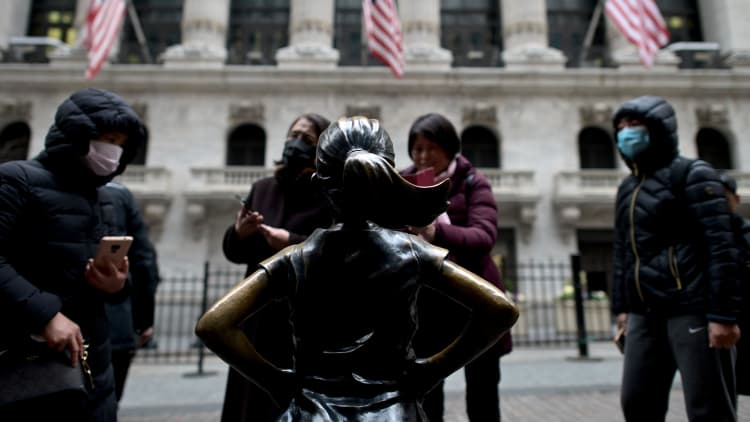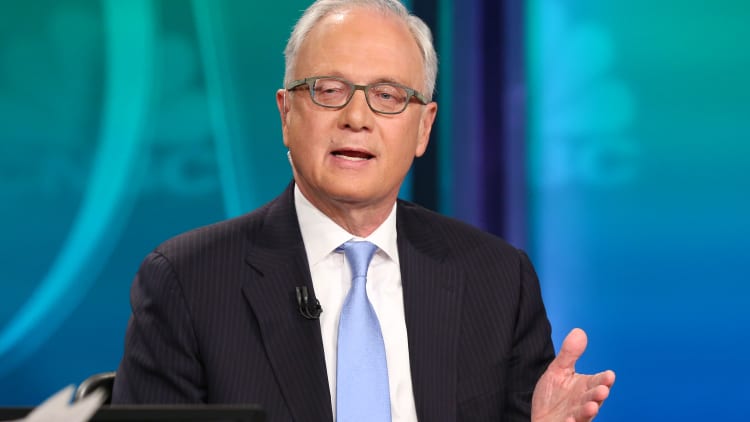
A top strategist at BNY Mellon said the bank is advising clients to avoid risk assets until the market figures out how the global economy will react to the coronavirus outbreak and other uncertainties.
Alicia Levine, chief strategist at BNY Mellon Investment Management, said on CNBC's "Squawk on the Street" that it was difficult for investors and analysts to model the damage caused by the global health epidemic.
"The main enemy of the market right now is uncertainty, because you can't actually model this … We're telling clients to take some risk off the table because, if you think about it, there's kind of a constellation of uncertainty here," Levine said.
The epidemic is only one part of the uncertainty that is roiling markets, Levine said.
"There's the Democratic race, there's the course of the virus and what the containment efforts for this does to the economy. And I'd just like to point out that the market has gone straight down since the Fed minutes came out on February 19," Levine said.
The U.S. stock market plunged again on Thursday morning, with the Dow Jones Industrial Average finishing the day down nearly 1,200 points, or 4.4%.
Levine said that she expected the effects of the outbreak to be in the rearview mirror in six months. Art Hogan, market strategists at National Securities, agreed that the market would recover in the months ahead but that the recent highs made this sell-off more violent than in similar situations.
"I think right now what we're forgetting is we're starting this epidemic at all-time highs, so obviously the initial damage is probably going to be a whole lot more than it has been for the other 11 global health scares that we've seen over the last 20 years," Hogan said. "But I think the other important thing to note is in all those other cases, three months and six months down the road global markets were higher."
Ed Yardeni, the president of Yardeni Research, said in a note Wednesday that this was "panic attack #66" since the bull market began after the financial crisis and that this could be the one to cause the flip to a bear market. However, he said on "Squawk on the Street" on Thursday that strong actions by governments around the world to contain the outbreak could lead markets to bounce back.
"I think as we see that these government actions are working, the pandemic of fear will abate and the market will come back," Yardeni said.



